So, you have reached the point where you are either frustrated with what you are doing or trying to do, or you feel like you have reached a plateau and aren’t going going anywhere.
Firstly its perfectly natural. This happens to all figure skaters and for many, it happens many times in a lifetime. There could be may reasons why you are feeling this way. You could be over focusing, in need of new types of training or just being too tough on yourself. Read on to find what is the most likely for you.
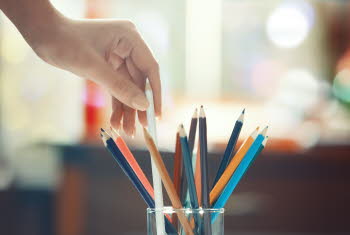
Take what you want, leave what you don’t
This article is aimed at helping as many people as possible. One size doesn’t fit all. So take the parts that you can connect with and leave the things that don’t resonate with you. Basically, take what you want and leave what you don’t.
Reasons for feeling frustrated – Which one are you?
To make this a little simpler, I will split up the possible reasons for frustration into the following:
- Over practicing the same problem area.
- Comparing yourself to others.
- Feeling that you aren’t making the grade.
- Wondering if you will ever get it, or thinking that you will never get it.
- Over practicing – exhaustion.
- Not enough time to practice.
- Life issues outside of the rink getting in the way
- Being over critical with yourself – A favorite of adult skaters!
- Feeling that you are in the wrong discipline.
- Reaching a plateau, in general that you cannot get past.
- The post competition/test blues.
- Not progressing fast enough.
- Receiving criticism from others.

Ice skating is hard
Just before I get into the whole subject, I thought I would state the obvious. ICE SKATING IS HARD. If it was easy everyone would do it. But, if everyone could do it, no one would be amazed watching the Olympics and none of your friends would think you are cool for being able to do it all. The bottom line is, if ice skating was easy, everyone would be doing it. So don’t be so hard on yourself.
Over practicing the same thing
Over and over again, over and over again. We have all been there right. You are learning your spin, so you spin, spin, spin and spin again. Now don’t misunderstand, if you are going to get good at something, you have got to do it hundreds and sometimes thousands of times. You can over cook it though.
If you are falling out of your spin after two or three revolutions. The answer probably isn’t to spin yourself into a dizzy mess trying. Sometimes if you are doing something wrong repeatedly, its because you are making the same error, over and over again. So doing it more and more times, might not help.
OK so you get to the point where you think, well that didn’t work, I’ll do it a different way. That’s great, because you do find new ways of doing things that way. But don’t keep trying and trying, getting more and more frustrated.
Take a break. Do something different for a while. Go and do something completely different and come back to later. You might find that you do better at it having had a break.
Talk to your coach. Yes, if you are struggling with something and getting so frustrated you are ready to bin the entire sport, back off. Tell your coach that you are struggling and try their advice.
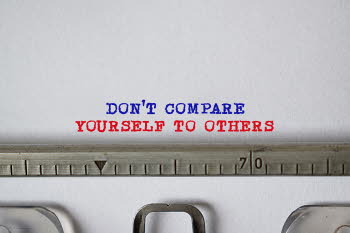
Why am I not as good as them? – Comparing yourself to other figure skaters.
We have all done it. I always have to tell myself not to compare myself to others. Yeah, it’s tough when you have just mastered a mohawk at anything like what you would call speed. Then what happens? Someone powers around the rink knocking out mohawks, counters, rockers etc. It makes you feel pretty bad.
It’s not where you are, its where you have come from. That’s right. Someone who I greatly respect, said that to me once and it’s true. The race is only with yourself. Try to stop focusing on where you you want to be and think of where you come from. Once you couldn’t even skate. Now look at you, OK, so your not Olympic standard, but that’s not the point. You are getting better all the time.
Gratitude – Be grateful. Gratitude is a wonderful humbling emotion. There will be people who can’t skate, who will look at you and think, I wish I could do that. But you don’t hear them. You hear the inner voice, telling you, you should be as good as that person over there. You are already better than most people on the planet. that is based upon the fact that most people can’t ice skate. OK, I don’t know what percentage of the earth’s population can skate, but its not very high. You are one of the few. Enjoy it.
OK, so its easier said than done. The bottom line is. Think how far you have come, be grateful for where you are. If you see someone that is great, learn from them. Maybe they practice loads, maybe they do off ice training, may be they have been skating longer. Either way, learn from them and realize that you are being the best you can be right now and you will get better and better as time goes by.
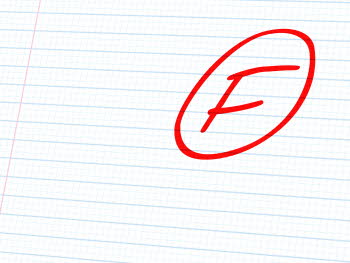
Feeling like you are not making the grade as a figure skater
Comparing yourself to others part II (the nightmare continues)
Well, I guess this happens to us all now and again. The issue here is, how high have you set the bar. You might not think that you have set the bar at all. I’m no psychologist, but you can’t help but notice other skaters around you right? May be you think oh they have a nice rocker or crikey, I can’t do a three turn at that speed. All the time you are setting the bar. Comparing yourself to a fictitious ideal. As S club seven said (and its not very often I quote S club seven) ‘bring it on back to you’. Yeah, its you, how better you are than you were last week, last month, last season. You are getting better all the time, be proud.
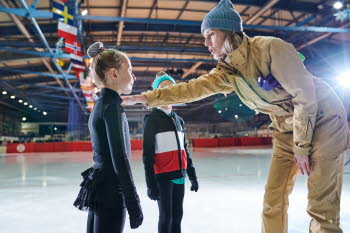
Feeling that you are letting your ice skating coach down
We all respect our coaches right? So you don’t want to let them down. But the truth is, what you think they think and what they actually do think are probably two totally different things.
I know myself, that sometimes it takes you absolutely ages to get something. You practice something over and over again and you still can’t get it. Every week your coach goes through the teaching of the element and every week you struggle. Its easy to assume that the lack of completing the move is frustrating to your coach. Well, that may be true, maybe it is frustrating. But that is not letting them down.
If you were to give up, stop trying, ignore their advice or start quoting to them what you have learned from you tube, then they will feel let down. If you are disrespectful to other skaters and coaches, then they may feel let down. But if you are trying your best and not getting it, you are letting no one down. Get up and try again. You are getting better, you just cant see it yet.
If you don’t achieve the level YOU wanted in a competition (notice its what you wanted here) doesn’t mean you have let your coach down. If on the run up to the competition you trained hard, you listened, you went out there and gave it your best shot, then you are letting no one down. Be proud.

Wondering if you will ever get it?
This has got to be the #1 frustration right? Everyone at some point has landed on their bum and thought, oooooooh will I ever get it. Well maybe not, there are some things that are just beyond you, but probably not as much as you think. I am guilty of this. You see other people doing stuff, you have never tried. When you have a go, it looks nothing like it and you wonder if you will ever get it.
I think the bottom line here is, it takes time. Most things you can get, but it takes ages. I mean somethings take a long long time to get right. Its hard because you cant see your own progress. You just have to believe that you are getting better and to keep trying.
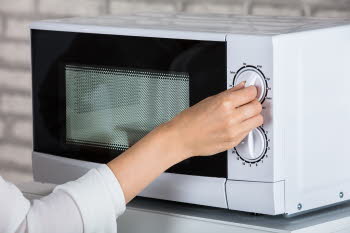
The microwave effect
OK, bare with me, here goes the analogy. So, when you look at a timer on a microwave, it doesn’t appear to move right, in fact, if you are watching and waiting, it seems to take ages. However, if you stop watching it, go away and make a cup of tea, when you look back the timer has moved. I guess the old saying of a watched pot never boils is right.
So, don’t scrutinize your progress on a daily or even weekly basis. Just get into the training and forget about your progress for a while. Then after a longer period, maybe a month, you can look back and think, yes I have improved over that period.

Try a monthly video analysis to help ease frustration
A good tip here is to get a video analysis from your coach on a monthly basis. If you can look at your progress in a particular area over, lets say, a month. You will see your progress more clearly than reflecting on your own ability. It is a way of seeing what your coach sees. On another note, video analysis is a great way to see where you are going wrong and for a coach to be able to point out particular areas of improvement. Most importantly, you can see how well you are doing in an area by comparison.

Over training in figure skating – Exhaustion
More is more right? No,,,,,,,,,,,wrong. I have personally fallen into this trap. You get frustrated because of a lack of progress and so you skate more and more. You do more off ice training. You do more of everything. Then when you turn up to your training sessions, you are tired. Some times you feel tired, sometimes you can’t tell, you just don’t seem to skate as well. So you train more.
Quantity of skating is no where near as important as quality. Its quality time on the ice you need, not just loads of time on the ice. OK, so you do need to to skate at least twice a week in my opinion to make serious progress, but those times need to be quality. Even if you are skating just once a week, but you have quality time, it can be better than skating loads and getting nothing out of it.
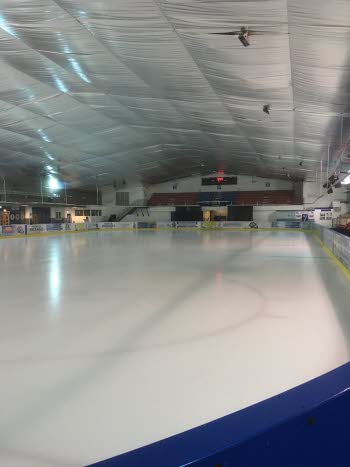
What is quality time when training in figure skating?
Quality time, is time when you have plenty of energy. Its time when you are well rested and hydrated. Its time when there are not loads of people on the ice to interrupt you. Its time when you can mentally focus on what you are doing with the minimum of distraction.
Rather than spending two hours on the ice, where you mosey around, talk to your mates for half an hour, do five minutes then go and get a coffee, get some quality ice time in. You can do more in an hour when you really put your mind to it compared with two two hour sessions when you are tired and not committed.
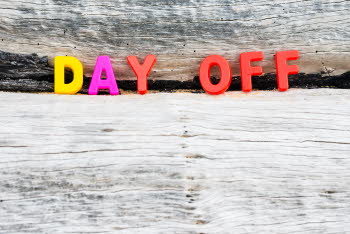
Don’t be afraid to take a day off from your figure skating training.
That’s right, if you are really tired or feeling under the weather, take a day off. You will do better when you go back refreshed and feeling well. It is tempting to go regardless of how you feel, knowing that you need to progress, but listen to your body. Don’t be afraid to take a break when you need to.
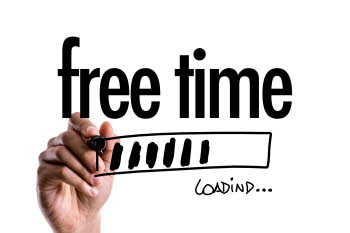
How to deal with the frustration of not having enough time to practice your figure skating skills.
It is frustrating, really frustrating when everyday life takes over and ice skating gets squeezed out to the periphery. When this happens, do the following:
As above with the quality time advice, use what time you do have to your best advantage. Prepare for your session by being well rested and planning what you are going to train on in advance. This way, you know exactly what you have got to do when you arrive at the rink.
If you have fewer practice times, make the most of them. Train with a higher level of concentration and make them count.
If you have restricted time at the rink, see if you can improve your skills with some off ice training. Maybe to increase core strength, flexibility and balance. Maybe try a home workout or yoga.
Relax. Times will change. Life will change. You won’t always be in the situation you are now. Its OK to not be training like an Olympic athlete all the time. Do the best you can, when you can and enjoy the time you can’t. If you cant skate or off ice train, spend time with people that you love. It may not make you a better skater. But it will make you a better person, that in the end, will make you a better skater. More than this, it will make you happy.
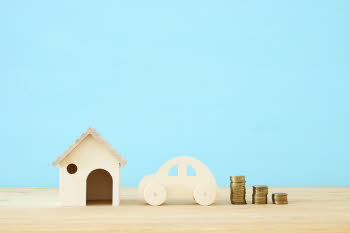
Life issues outside of the rink getting in the way
Its hard to always maintain the same schedule, life is just not like that. If you are an adult skater, maybe you have changed job and the new hours don’t fit in with your old or your ideal training regime. May be you have relationship issues, money issues. Maybe you have suffered a bereavement or are heart broken for other reasons.
If you are a younger skater, may be you can’t get a lift in or have exams to revise for. Maybe you are struggling for the cash and your parents have to prioritize. All these things happen, life happens. This can cause a great deal of frustration. But worry not. Here is what to do.
Firstly, if your training is restricted, do as mentioned above in the ‘not having enough time to practice‘ section. Maximize what time you do have and make the most of it.
If you are really restricted on your skating because of other issues outside of the rink, aim to keep your ice legs. There have been times myself, when ice skating is hard or just not a priority at the moment. Whenever this happens, I just aim to keep my ice legs. By that I mean, if you can’t progress, then just skate whenever you can to keep your ice legs. This means that you won’t loose your balance on the ice or forget the feel of it.
Keep your coach informed. When something off ice affects your skating on ice, then tell your coach. If your coach knows, then you can work through the ice skating part of your problem together. Remember, they are there to help.
Remember, that life will change and things are rarely forever. Things will change once more in your favor and you will be able to commit to ice skating once more. Keep skating when you can and don’t give up.
Finally, ice skating is good for the soul, there are somethings in life that can be helped by having a little ‘me’ time. Ice skating has a way of liberating the soul, it can be more powerful than you may think in terms of getting you through tough times.
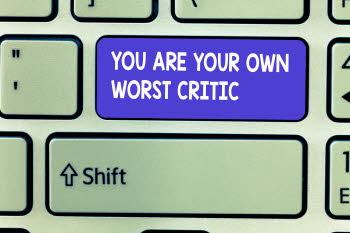
Being over critical of yourself
Being over critical on yourself is easy. It comes way too easy if you are an adult skater. Us adults do a really good job of mentally beating ourselves up about ice skating. We are very good at it, but we are not the only ones, anyone can be over critical on themselves.
We have all said, ‘oh why can’t I do it?’ Well the answer to that is probably that you haven’t practiced enough, had enough coaching or are doing it wrong.
It takes time, this ice skating lark, a lot of time, so go easy on yourself. Don’t forget that it’s not easy, if it were, everybody would be doing it. Don’t set the bar too high, try not to compare yourself with others and have a bit of fun. Don’t forget that’s why you do it, because its fun. Its not the end of the world, move on to something else for a bit. Come back to it later. Get more help and advice from a professional coach. GIVE YOURSELF TIME.
For younger skaters
You have time on and youth on your side. Have patience. Listen to your coach and keep practicing. Don’t judge yourself on other peoples abilities. Concentrate on you, be better than you were last year, forget the others. Keep trying, listen to your coach and know that you are getting better all the time, even if it doesn’t feel like it.
There is a note for parents here as well. It is tempting to interfere with the coaching process, especially as you want the best for your child. However, if you are hanging over the barrier and disrupting the coaching process, this can cause confusion and frustration for both parent and child. Comparing your child with other skaters will only help to undermine. With the exception of your child’s safety being at risk, sometimes the less said, the better.
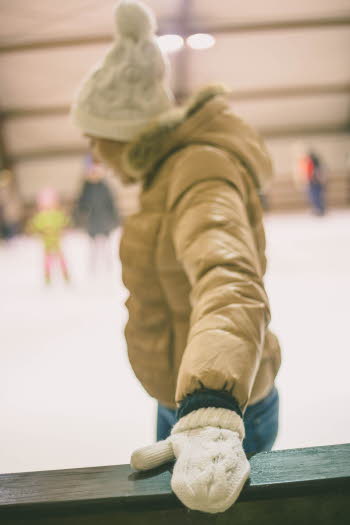
For adult skaters
Its even easier to be hard on yourself if you are an adult skater. Chill out, there is more against you. Your not as young as those around you, your not as flexible and you don’t bounce so well when you fall. It takes longer to recover from training and injuries.
You have a ton more responsibilities as an adult. You have to think about work and children and what would happen if you were injured. You don’t get less scared as you are older, fears are more built in. But that’s not all of it, you have skills that you can use that the youngsters may not posses.

Roll with your strong points
As an adult you have a unique set of skills. Use them to your advantage. Take the cards you have and play them hard.
You have listening skills much greater than the youngsters, use them, listen to every word your coach says, record training sessions in a book, make notes, learn faster.
You, as an adult have great communication skills, that took a lifetime to master. Throw those bad boys at the problem. Use communication to discuss problem areas, frustrations and explore new path ways.
Be scientific, all that schooling should be used for something right? Get smart, get science. discuss the physics of moves, understand counterbalance, alternative techniques and different ways to to create the desired effect through different schools of thought.
Be more resilient mentally than the kids, use your patience and methodical approach to win through.
This goes for everybody, you are getting better all the time, sometimes you can’t always see it, but you are getting better. Stick with it people, Rome wasn’t built in a day.
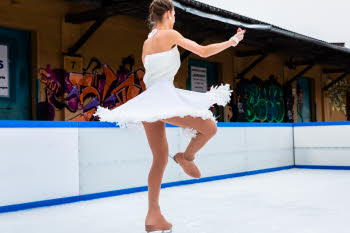
Feeling that you are in the wrong discipline
So you are a figure skater skating free solo that is secretly thinking, I really want to dance. Maybe you really want to give free a go, maybe try out for the synchro team.
My advice is try it. Give it a go, what ever it is. Don’t commit whole hardheartedly to something you have never done, but get a taste. Have a word with that dance coach, suggest a couple of lessons. Go with a friend if you don’t know any one to that dance club one time. Be brave give it a go. If you are nervous, tell the coach that you are approaching that. Say something like ‘I would love to try …………..(whatever the discipline) but am a bit nervous, what do you recommend.
Don’t commit to the new thing straight away, dip your toe before you dive in. If you like it, consider committing to it a bit more.
Don’t go behind your coaches back. Your coach, knows a lot of other coaches and will end up finding out if you are changing discipline or taking coaching from someone else without telling them. Have the respect and the decency to discuss it with your coach first. Everyone moves in different directions in ice skating at some point. Keep your coach informed, because sometimes, an act of change can seem like betrayal if you do it in a sneaky way. Bottom line, be honest and respectful and you will normally get the same back.
Some times training in another discipline can help you in your current discipline. For example, if you are a free skater, doing jumps etc, doing some ice dance can only help with your edges and general skating ability. Equally, if you are an ice dancer, getting some free skating experience can be a great help. This will help with the free dances, that have spins and spirals. Some of the best ice dancers have been a good standard of free skater in their day.
Reaching a plateau in figure skating and how to get through it
This is a phenomenon that I have really only felt in figure skating. Maybe because skating is the thing that I have stuck to the longest, maybe it is just particular to figure skating, I don’t know. I just now I have felt it and how I got through it, so here is how it felt for me.
So you just basically feel, well a bit bored, a bit going nowhere, a bit same old, same old. There won’t be any big reason, no cataclysmic competition fails, no horrendous falls, you just feel kind of stuck, not going anywhere, not really progressing.
The key here is going the distance. When you feel like giving up and just for no apparent reason saying to yourself ‘I have had enough of this now’, hold on. Its just a feeling and it will pass. If you keep skating, the passion and excitement will return. You just have to ride out the rough times.
Sooner or later a new opportunity will present itself, maybe a change in training, maybe a test, show or competition. Often, a new event will re-ignite your passion, something different from the norm, something that creates that spark again, that relights your fire (cue the song by Take That….LOL). Keep at it and something will come along.
Often I think that it is a frustration about your own skating ability, I’m no psychologist, but when you are really skating well, the feeling of plateau goes, often it is frustration at our ability. As your ability improves, the feeling of plateau will often go.
The freaky thing is, that will really bend your mind, is that often the feeling just goes. It comes for a while and just goes, it just passes by like the wind, its here and then its gone.
If it is really getting to you, that you really feel a plateau and don’t know why, speak to your coach. If you don’t have a coach, then talk to other skaters. It will most likely pass, stick with it, go the distance and you will improve and fall in love with the sport again.
Growth spurts in children causing a frustrating plateau in figure skating
It is worth mentioning here , on the subject of plateau, that a growth spurt in a child can sometimes be the cause. There has been many a good child skater, that has suddenly ‘palateaud’ due to a growth spurt. Sometimes a child can suddenly lose a perfectly good twizzle or spin due to a growth spurt. This can be a source of frustration for both the child and the parent. This will go however, if training and practice continue. It is a matter of sticking with it.
How to deal with the post competition or test blues
It’s not uncommon to feel a lull, a kind of frustrated low, a few weeks after taking a test or taking part in a competition.
I felt this myself once after taking two ice dance tests relatively close together. As an adult skater, it was quite a triumph for me to pass two ice dance tests in the same year. That year I had worked really hard towards the tests, focused a great deal. My coach had put a lot of effort into the tests and I had made great progress in the training. The tests came, I was very nervous, but I passed them. I was elated.
After the tests, I felt like my standard of skating had gone down, or at least plateaued. With nothing major to work on, I felt a bit stuck, like you are back to just going through the motions of skating, but not hitting the high of really progressing.
In this situation, I really recommend speaking to your coach. My coach informed me, that on the run up to a test or a competition, you operate at a high level. You are doing everything to the max, but you can’t stay up there forever. There has to be a come down.
When we skate, our training is in waves. There are periods where you operate at your peak. There are periods where you go back to basics and begin to struggle at new concepts.
When you take a test or enter a competition, you have to get really good at one area. If its a test, you are practicing what is needed for the test, over and over. When you are training for a competition, you are practicing your program over and over. You get very good at one small area of figure skating. But when you are returned to normal training after the event. you begin to train once more in other areas.
This is often where the problem lies. In all of the other areas, you are not so good. Your memory of the areas that you have become very good at quickly go and you are plunged into struggle once more. This is the post competition or test blues (well that’s what I have called them anyway).
Don’t worry. Give it a couple of weeks and you will begin to feel progress in the new areas you are training in. You will be able to see progress and get the feeling of gaining new skills.
Speak to your coach, they will almost certainly be used to this with their students. Plan together new goals and how your current training fits into the bigger plan. As soon as you start moving on to new things, you will be fine. Try not to forget all that you have achieved and seize the opportunity to take on new challenges and the struggles that they bring. You will have greater skill as a skater and have a real sense of passion for what you do.
Not progressing fast enough
Not progressing fast enough for who? For you most likely. This is another case of setting the bar too high and how we classify progression. I shall deal with this in two parts.
Who are you not progressing fast enough for?
I doubt it is your coach. They are more likely to be interested in well learnt skating techniques, mastering the basics and that you make steady and safe progression.
It is more likely to be yourself that is setting a bench mark that cannot be achieved. Don’t set the bar so high. You are progressing, maybe not at the speed that you would like, but you are progressing. It is important here to realize that there is a difference between not progressing very fast and plain old impatience. Be patient with yourself. Enjoy the journey. You will get there.
How are you measuring your progress?
Don’t fall for the cheap trick syndrome. It is easy to watch someone who only ever practices one thing and think, ‘Oh i can’t spin like that’. That is because all they ever practice is spins. No edge work, no transitional moves, just spins.
Don’t fall foul of cheap trick syndrome. This is where you only focus on the bits that make people go wow. So the jumps, the spins, the spirals, the fancy bit of foot work, your party piece. Just because you don’t have a host of crowd pleasing moves doesn’t mean you aren’t progressing. Work on your basic skating skills.
It is your basic skating skills that will make you a great skater. Your control, your edge work, your transitions. These take longer to learn. So it is easy to feel that you are not progressing when you see someone banging out a fancy move in front of you. Stick with what you are working on, get the basics down first. When you have got them, what ever you learn next is an addition, because you will already be a good skater.
Past all of that, if you still feel like you are not progressing fast enough and its really getting to you, speak to your coach, don’t keep it all inside, they will most likely have ways of helping you.
Receiving criticism from others
Be careful whose advice you buy. Ask yourself what they have to gain by giving it. If the person who is giving you advice is a caring friend, who is also a good skater. Well there is a chance that the thing they have to gain is the genuine wish to help a friend. So maybe they have a point, so maybe ask your coach about the area they have pointed out.
If the person is not really known to you that well or is just an acquaintance, what do they have to gain in telling you that you are doing something wrong? Are they just trying to make themselves feel better by putting you down? There are lots of people in life like this, skating is just one area where you meet them. Beware of advice or criticism they give.
If your coach criticizes you. They have nothing to gain other than to help you and make you a better skater. They have already proven themselves as skaters. So that’s fine (as long as you are spoken to in a dignified manner, with respect, which is how you should speak to your coach and any other human for that matter). That’s what you are paying for. Someone to point out where you are going wrong and to use their years of experience to tell you how it should be done in a safe and successful way. Get used to being corrected by your coach, that is the whole point of having a coach.
So, when taking criticism, listen to your coach first. Maybe! Take on, if you wish, what your trusted loving friends tell you and ask your coach about areas raised. As for the doubters and haters, well, you keep training for you and don’t sink to their level. You are doing fine, just keep practicing.
In summary
You are going to feel frustration as a figure skater. SKATING IS HARD. Most frustrations will pass in time. They will pass. Seek advice in your coach, don’t be so harsh on yourself, go the distance, keep skating and have fun! It is a beautiful sport and you are amazing.

